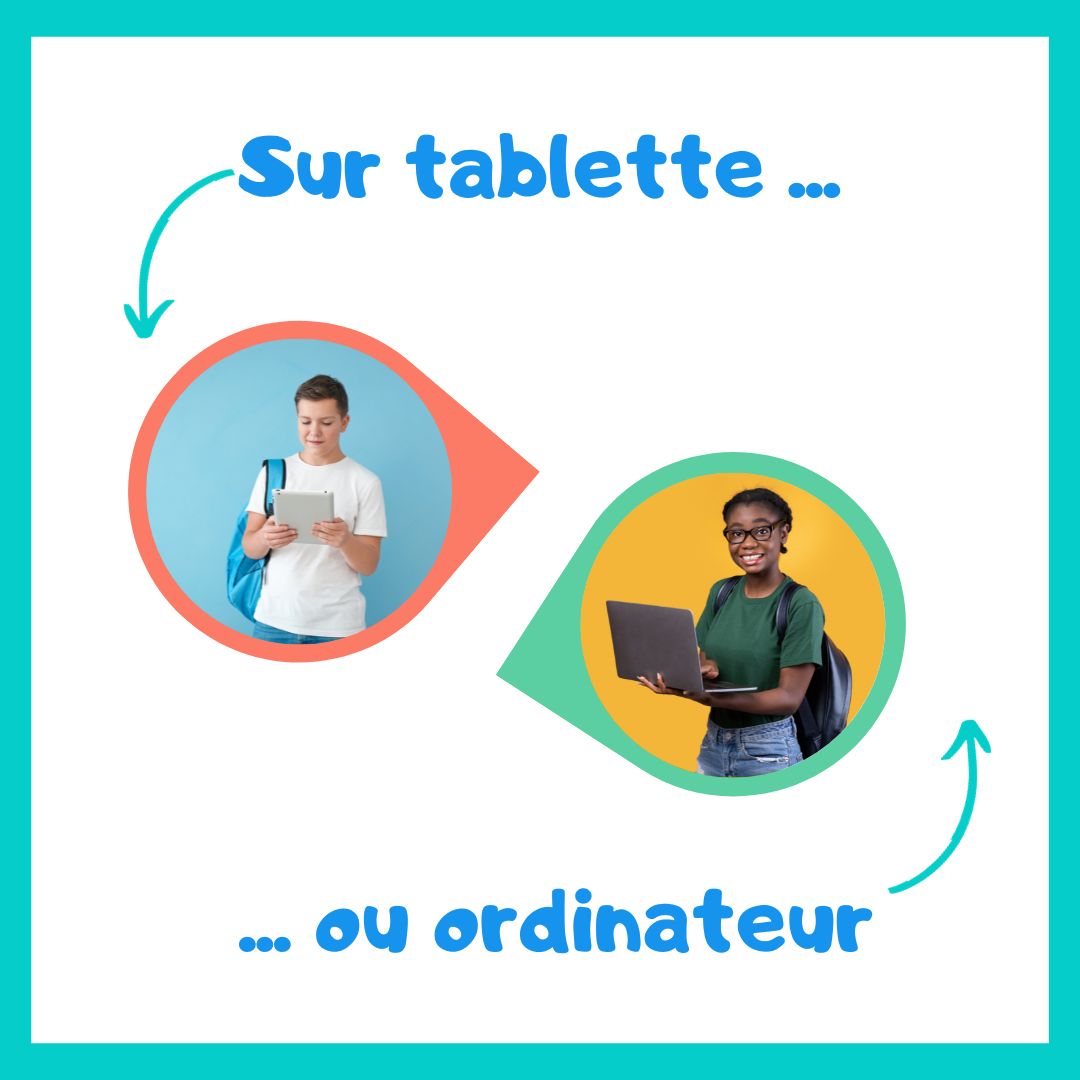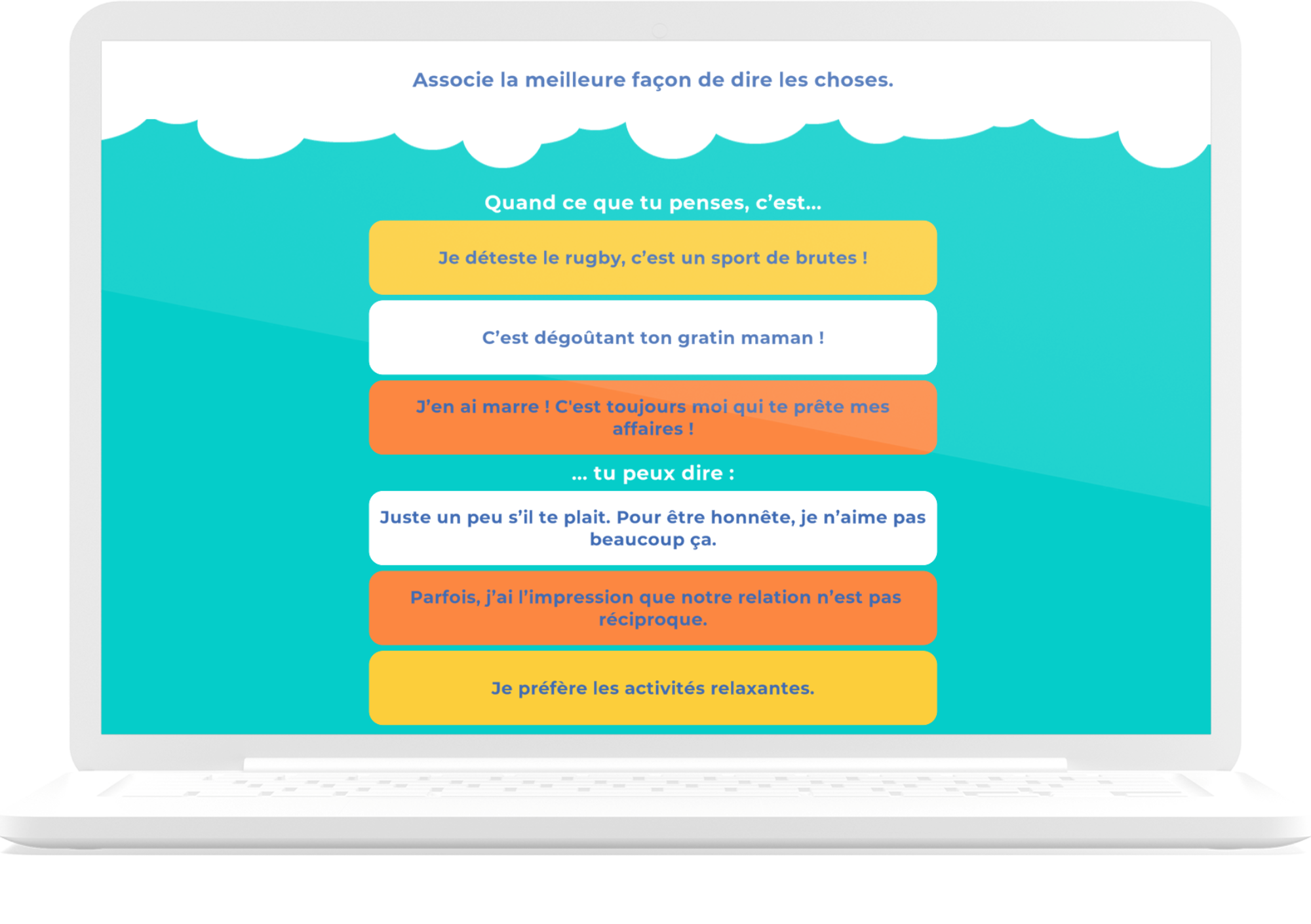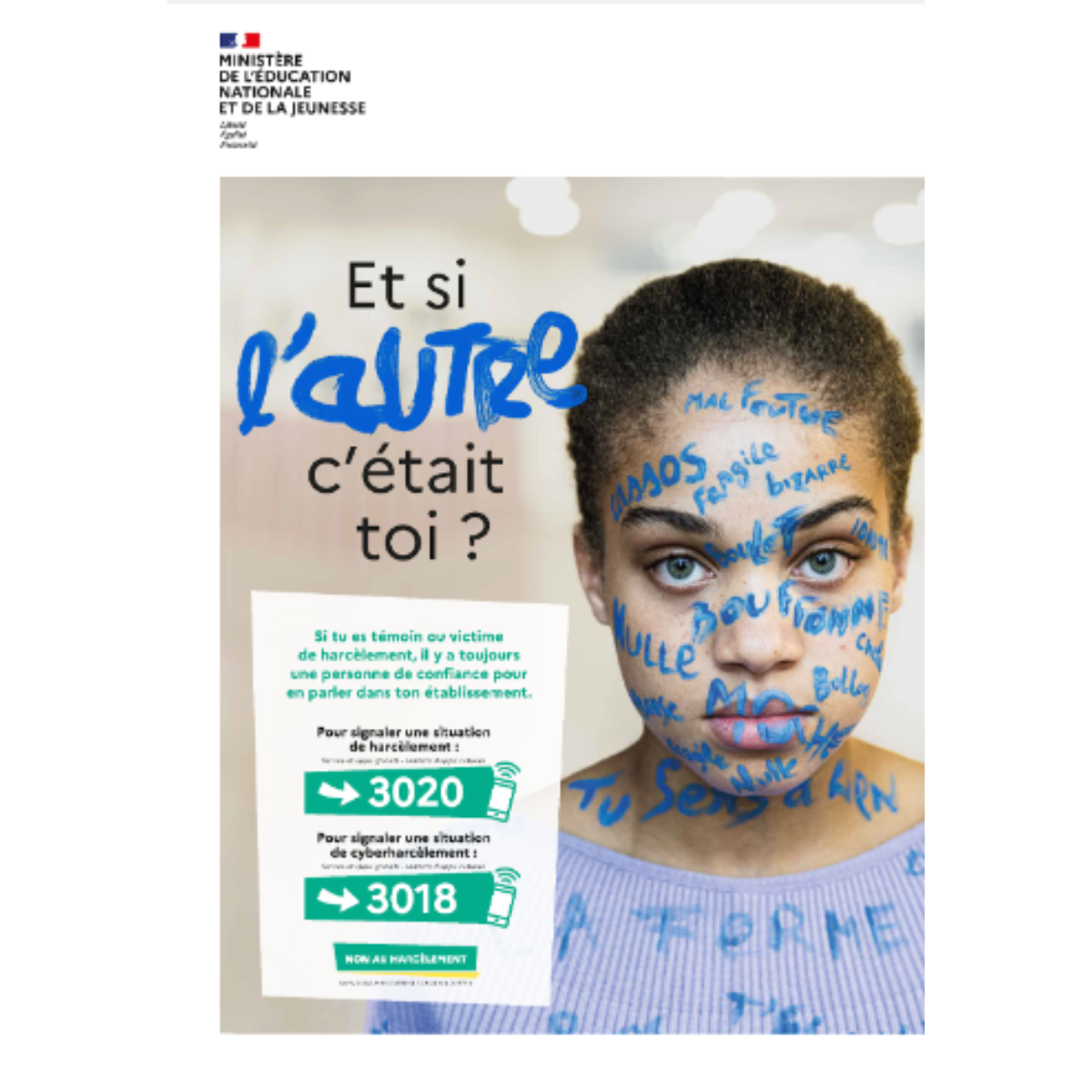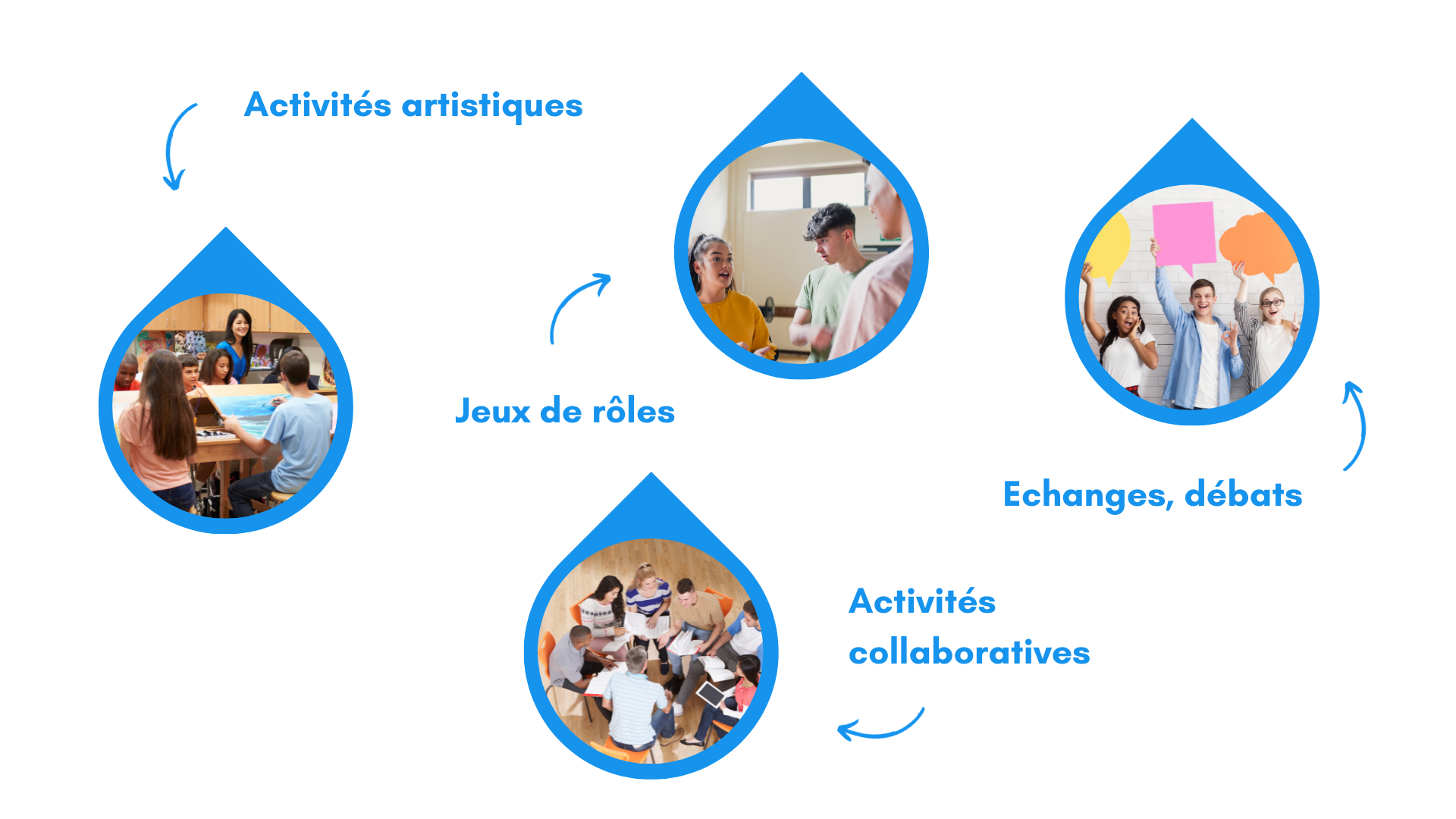LIVING TOGETHER PROGRAM CYCLE 4
Findings on bullying at school
The DEPP* national surveys on school climate in 2021 and 2022 conclude that 4 / 10 pupils say they have been the victim of insult, mockery, ostracism or theft at least once during the year; and 6.7% of secondary school pupils report five or more incidents of repeated violence.
*Evaluation, Forecasting and Performance Department
What do the national education programs say?
EMC focuses on respect for others, the values of the Republic and civic culture. In particular, it promotes the "culture of sensitivity": being capable of empathy, expressing one's opinion while respecting that of others, accepting differences.
With regard to the fight against harassment, Minister Gabriel Attal has affirmed his desire to strengthen the pHARe program by drawing on methods that have proved their worth in Nordic countries: empathy courses will be integrated into the curricula and should be in place by the start of the 2023 school year.

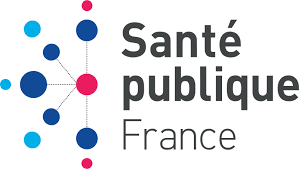
Advertisements in line with the recommendations of health authorities
Numerous bodies, such as France Publique France and theWHO, recommend focusing actions on the development of Psycho-Social Competencies, rather than campaigns centered on information and knowledge of risks or benefits: the culture of empathy, the development of self-confidence, the ability to assert oneself, informed decision-making, are extremely powerful levers in terms of prevention.
OUR program objectives
"living together
- Self-assessment and developing assertiveness within the group
- Know the principles of assertive communication
- Respecting the values and sensitivities of each individual
- Taking action against violence and harassment at school
The program in detail
Session 1: The first session focuses on group positioning, living together and establishing a good class climate. First, students take a self-assessment quiz on their ability to assert themselves. Then, a matching game will teach them to relativize the risk of speaking up by finding appropriate formulations. Finally, a group activity will enable them to question the notion of group.
Session 2: The second session focuses on communication, empathy and respect. Students will understand that the emotions and needs of others are personal to each person, through situations presented in the form of mini-videos. They will then learn the 4 principles of assertive communication and put them into practice through role-playing.
Session 3: The third session aims to raise awareness that respect is a relative notion, in order to develop empathy and prevent harassment. First, they will discover different rules of politeness around the world. Then they'll rate incivilities on their personal barometer and compare results with others.
Session 4: Students reflect on the personal limits of humor in a swipe game. They will then learn how to react in the event of harassment, using one of the mini-videos and multiple-choice questions. Finally, a collective activity (group work, role-playing or testimonies from celebrities) will anchor this learning.
Session 5: Finally, the students collectively review what they've learned during the sequence, and keep a written record.
Our edutainment approach
Our approach combines independent games on tablet/computer and classroom activities.
But why use digital technology to work on CPS?
A variety of games enable students to reflect on themselves and discover best practices in concrete, everyday situations.
Ergonomics and easy-to-understand instructions encourage intuitive use by students: sorting games, drag & drop, MCQs, mazes, sophrology, etc.
Then a class activity is proposed. This could be, for example :
> a collective exchange or debate to develop opinions
> a role-playing game to put what you've learned into practice
> a small-group activity to consolidate what you've learned and learn to collaborate
> an artistic activity to develop creativity
> a task to formalize what you've learned, such as application exercises or the creation of a written record.
A turnkey tool
In your teacher interface, you will have access to all the resources you need to implement the session:
- student tracking charts,
- step-by-step teaching guides for easy-to-use sessions,
- student materials to be projected or photocopied,
- but also advice on how to use them,
- and a proposed annual progression, as well as references to official programs.
To sum up:
In short, the Living Together program will develop your students' assertiveness and empathy, as well as a healthy classroom climate and respectful communication, which are key factors in preventing violence and harassment at school.


